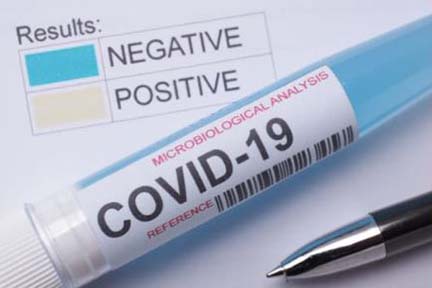
by orionontv | Oct 10, 2024 | Health and Wellness
Residents Urged to Protect Against Mosquito Bites Throughout the Fall
Post Date:10/03/2024 12:18 PM
 Pontiac, Mich. – Oakland County Health Division reminds residents to prevent mosquito-borne illness by avoiding mosquito bites while they work or recreate outside during the fall. Mosquitoes remain active until the first hard frost of the year.
Pontiac, Mich. – Oakland County Health Division reminds residents to prevent mosquito-borne illness by avoiding mosquito bites while they work or recreate outside during the fall. Mosquitoes remain active until the first hard frost of the year.
“Keep protecting yourself against mosquitoes as we transition into fall,” said Leigh-Anne Stafford, Oakland County’s director of Health & Human Services. “As you enjoy outdoor fall festivities like football games and cider mills, take steps to prevent mosquito bites.”
Most people who are infected with mosquito-borne diseases have either no symptoms or experience a mild illness such as fever, headache and body aches. However, in some individuals, a more serious disease-causing inflammation and swelling of the brain can develop.
Follow these prevention tips:
- Use Environmental Protection Agency (EPA) registered insect repellent.
- All EPA registered insect repellents are evaluated for safety and effectiveness, and will contain DEET, picaridin, IR3535, Oil of Lemon Eucalyptus or para-menthane-diol as the active ingredient. Repellents containing a higher percentage of the active ingredient typically provide longer-lasting protection.
- Always follow the product label instructions.
- Be careful using repellent on the hands of children as it may irritate the eyes and mouth.
- Get rid of mosquito breeding sites by removing standing water around your home.
- Turn over any container that can collect water. Once a week, empty items that hold water such as tires, buckets, planters, toys, pools, birdbaths, pet bowls, flowerpots and trash containers.
- Clean clogged roof gutters, especially if leaves tend to plug the drains.
- Treat standing water – such as retention ponds or drainage ditches – with a mosquito larvicide. It is easy to use and can be purchased at most home improvement stores.
- Wear long-sleeved shirts and pants.
- Limit outdoor activity from dusk to dawn when mosquitoes are most active.
- Make sure there are no holes in window and door screens. Do not prop open doors.
West Nile Virus and Eastern Equine Encephalitis are mosquito-borne diseases. Mosquitoes are infected with the virus by biting infected animals, such as birds or deer. The virus is spread to humans through the bite of an infected mosquito. With West Nile Virus, people over the age of 50 are more likely to develop serious and potentially life-threatening symptoms if they become ill from the virus.
More information about mosquito-borne diseases can be found on the Health Division’s website at oakgov.com/health or by contacting Nurse on Call at 800-848-5533 or [email protected]. Nurse on Call is available 8 a.m. to 5 p.m. Monday through Friday. For up-to-date public health information, follow @publichealthOC on Facebook and X.
For media inquiries only please contact Bill Mullan, Oakland County public information officer, at 248-202-9668.
Return to full list >>

by orionontv | Oct 10, 2024 | Health and Wellness
|
Press Release
FOR IMMEDIATE RELEASE: Oct. 10, 2024
CONTACT: Lynn Sutfin, 517-241-2112, [email protected]
MDHHS issues Request for Proposal for
Juvenile Justice Facility Infrastructure Improvements
LANSING, Mich. – The Michigan Department of Health and Human Services (MDHHS) Division of Juvenile Justice has issued a Request for Proposal (RFP) to improve infrastructure of juvenile justice facilities. The $2 million in funding was included in Gov. Gretchen Whitmer’s FY2025 budget.
“The Juvenile Justice Facility Infrastructure program is part of a continuing effort to improve juvenile justice facilities across the state,” said Elizabeth Hertel, MDHHS director. “This investment will fund projects and activities at private and locally operated juvenile justice facilities to assist with infrastructure improvements and ensure available beds continue to be on hand.”
Eligible applicants include nonprofits, private and public entities, and federally recognized tribes or a group of federally recognized Michigan tribes, that operate a juvenile justice facility or facilities.
The grant period is from Jan. 1, 2025, to Sept. 30, 2025. The total amount available is $2 million, with awards ranging from $200,000 to $2 million.
Grant applications for the Juvenile Justice Facility Infrastructure program RFP must be submitted electronically through the EGrAMS program by 3 p.m., Thursday, Nov. 7.
A pre-application conference will be held to provide instruction on using the EGrAMS system at 10 a.m., Monday, Oct 14, and will last approximately 90 minutes. The webinar can be accessed at https://bit.ly/3ZRaV4O.
For more information or to apply, visit the EGrAMS website and select “About EGrAMS” link in the left panel to access the “Competitive Application Instructions” training manual. The complete RFP can be accessed under the ‘Current Grants’ section under the “Children’s Services Agency” link and selecting the “JJFI-2025” grant program. |

by orionontv | Oct 10, 2024 | Health and Wellness

Press Release
FOR IMMEDIATE RELEASE: Oct. 10, 2024
MEDIA CONTACT: E. Stover, 517-285-6270, [email protected]
MDHHS announces more than $1.2 million in Children Trust Michigan grants to help prevent child abuse
Organizations in Kalamazoo, Oakland, Van Buren and Wayne counties receive funding
LANSING, Mich. –The Michigan Department of Health and Human Services (MDHHS) announced the Children Trust Michigan’s Board of Directors approval of $1.28 million for four Michigan community-based organizations to support child abuse prevention programs and services.
The grants will be funded over a four‐year period. Winning grant proposals were selected through a competitive bid process. Strong emphasis was placed on assuring funded initiatives are appropriately integrated into broader community plans for serving children and families.
“MDHHS is fully committed to keeping Michigan kids safe,” said Elizabeth Hertel, MDHHS director. “Children Trust Michigan provides critical funding to community-based organizations across Michigan that prevent child abuse and neglect. Their prevention efforts are a key part of MDHHS’s Keep Kids Safe Action Agenda.”
Children Trust Michigan (CTM) is a nonprofit housed within MDHHS. CTM partners with MDHHS on a variety of initiatives and projects implemented by CTM.
“It is always exciting to award critical funds for the prevention of child abuse and neglect,” said Suzanne Greenberg, CTM executive director. “Our prevention team will work closely with our new grantees to build protective factors for children and families that will make safe, healthy and happy childhoods possible for Michigan’s children.”
The four organizations receiving funding are:
- The Children’s Center, Wayne County, $320,000 for expansion of the Family Resource Center to help families meet their basic needs and Parent Cafés.
- Centro Multicultural La Familia Inc., Oakland County, $320,000 for their Opening Doors Program and Parent Cafés.
- Van Buren Intermediate School District, Van Buren County, $320,000 for Parents as Teachers Home Visiting Program.
- YMCA of Kalamazoo, Kalamazoo County, $320,000 for Crisis Nursery, Respite Care for Parenting Persons.
With the newly funded initiatives, combined with other multi‐year grant commitments and the statewide network of local councils, CTM distributed more than $2.6 million in FY24 in support of child abuse prevention programming across the 83 counties in Michigan.
Keep Kids Safe Action Agenda
The Keep Kids Safe Action Agenda, announced in 2023, includes more than 20 protocols and policies to improve the safety and well-being of Michigan children. Developed over the course of more than four years, the agenda relies on best practices in child welfare and commits the department to the nation’s highest standards. The action agenda highlights the steps MDHHS has taken and will continue to take that can be separated into five categories – prevention, intervention, stability, wellness and workforce.
To learn more about Children Trust Michigan, its efforts to end child abuse and where its programs and services visit ChildrenTrustMichigan.org.
About Children Trust Michigan
Created by the Michigan Legislature in 1982, Children Trust Michigan is the state’s only statewide nonprofit organization solely dedicated to the prevention of child abuse and neglect. Children Trust Michigan serves as a voice for Michigan’s children and families and promotes their health, safety and welfare by funding effective local programs and services that prevent child abuse and neglect. |

by orionontv | Oct 1, 2024 | Health and Wellness
Happy October!We have a busy month ahead of us here at the NOCC, with plenty of opportunities below for you to get involved! In this newsletter, we cover:
- The Oxford Parent Education Fair
- Take Back Day locations
- Our Smart Students campaign
- The New In The Loop parent group
- Youth Action Board
Have a great month! |
|
|
Oxford High School announces the first annual Parent Education Fair! The fair will be a conference-style event for parents and caregivers of the Oxford Schools community. The Parent Education fair will be held on Saturday, November 2nd from 8:15am to 12:30pm at Oxford Middle School. The NOCC is thrilled to sponsor this year’s keynote presentation by Nikki O’Donnell.
In addition to the keynote, there will be breakout session opportunities and community resource tables so parents/caregivers can connect with local community resources, including such topics as coping skills, special education, caregiver trauma and resilience, and more, as well as two breakout sessions hosted by the NOCC about Vaping and a QPR Suicide Prevention training.
Registration for this event is free and required. Childcare will be available for infants to children age 12, but must be noted when filling out your registration form. To learn more about the event, visit the Oxford Community Schools event page here. To register for this event, click here.
|
|
| Take Back Day is October 26th, from 10am-2pm. We’ll be out at the Oakland County Sheriff’s Orion Substation and the Village of Oxford Police Department to help dispose of any old or unused medications.
Wondering what you can drop off? Currently, we cannot accept any liquid medications, inhalers, or needles. Pills, including liquid gel capsules, are allowed, and must be popped out of any blister packs or removed from their prescription bottles and put into plastic sandwich bags. |
|
| With Homecoming quickly approaching at both Lake Orion and Oxford High Schools, the NOCC will be visiting both schools to talk about the importance of staying safe and sober! On October 11th, we will be visiting Lake Orion High School to kick off our annual Smart Dragons Don’t Drink campaign, and will visit Oxford High School on October 14th to start Wise Wildcats Don’t Drink campaign! If you have students at either of these schools, make sure to ask them about what they learned during these lunch visits. |
|
|
In The Loop is a group for Lake Orion and Oxford Parents that provides information about trending social issues that may affect your children. You will have access to:
If you would like to be In The Loop, please visit our “In The Loop” website page, and follow the instructions to sign up for our In The Loop newsletter!
|
|
| Both our Lake Orion and Oxford Youth Action Boards met for the first time this past month, and we were so excited to see both some new and returning faces! Throughout the school year, our Youth Action Boards will work to help create and provide input to our campaigns, such as No Vape November, our anti-drinking campaigns, and more. If you have a student at Lake Orion or Oxford High Schoolers who would like to get involved, the best way to learn about meetings is to follow our YAB Instagram pages! To follow our Lake Orion YAB, click here. To follow our Oxford YAB, click here. |
|
|

by orionontv | Oct 1, 2024 | Health and Wellness
|
Press Release
FOR IMMEDIATE RELEASE: Oct. 1, 2024
CONTACT: Lynn Sutfin, 517-241-2112, [email protected]
MDHHS reminds Michigan residents about
available COVID-19 testing options
Residents urged to stay home if sick to prevent spread of respiratory diseases
LANSING, Mich. – As fall begins, the Michigan Department of Health and Human Services (MDHHS) encourages Michiganders to get free COVID-19 at-home tests through the federal government’s COVID-19 tests website and reminds residents about additional Michigan-specific testing resources.
“We encourage Michigan families to take advantage of the free COVID tests being provided to reduce the risk of spreading the virus,” said Dr. Natasha Bagdasarian, chief medical executive. “And although it is important to test for COVID, families should also consider other respiratory diseases including RSV and influenza as we head into fall and winter when these diseases are most commonly spread. Please stay home if you are sick, even if you have a negative COVID test.”
All U.S. residents can go to COVIDTests.gov to sign up to receive up to four free at-home tests per household delivered via the U.S. Postal Service.
Additional testing options in Michigan include:
MDHHS encourages Michigan families to have a COVID plan that works for them. This may include:
- Keeping a supply of COVID-19 over-the-counter tests and well-fitting masks at home.
- Getting the updated COVID-19 vaccine.
- Speaking to a health care provider about eligibility for therapeutics that reduce the risk of severe COVID-19 disease for those who test positive.
- Staying home if sick and learning more about Respiratory Virus Protection Strategies.
|

by orionontv | Sep 17, 2024 | Health and Wellness
Press Release
FOR IMMEDIATE RELEASE: Sept. 17, 2024
CONTACT: Lynn Sutfin, 517-241-2112, [email protected]
MDHHS partnering with behavioral health agencies
to expand access through Adult Crisis Stabilization Units
LANSING, Mich. – As part of an effort to increase access to behavioral health services, the Michigan Department of Health and Human Services (MDHHS) is partnering with 10 agencies across the state to create Adult Crisis Stabilization Units (CSUs). A $32 million investment to establish CSUs was included in the FY2023 budget.
Adult CSUs provide immediate crisis support to anyone in a behavioral health crisis with services ranging from a couple hours to up to 72 hours. Programs will be focused on stabilizing individuals 18 and older with CSU staff providing support until the individual is actively engaged in their next level of care. These units will also be equipped to manage and treat minor medical conditions so that individuals in a behavioral health crisis aren’t sent to the emergency room for basic medical care.
Two agencies began providing CSU services to their communities earlier this year. Network180’s Behavioral Health Crisis Center in Grand Rapids began operations in May, while Detroit Wayne Integrated Health Network Crisis Care Center (DWIHN) opened its doors in June. Network180 is collaborating with Trinity Health Grand to ensure the needs of the community are met at its CSU. As of Saturday, Aug. 31, Network 180 has provided 581 interventions for individuals in crisis and admitted 268 adults to its crisis center, while DWIHN has provided 486 interventions and admitted 368 adults to its crisis unit.
“These units provide increased access to immediate crisis services to anyone struggling with mental health or substance use, which will reduce emergency room boarding, improve jail diversion and allow for better utilization of inpatient psychiatric hospital beds,” said Elizabeth Hertel, MDHHS director. “While these programs are not intended to replace ongoing treatment, they will offer fast and easy access to individuals when they need it most.”
September is Suicide Prevention Month and according to a KFF report, 665,980 Michiganders report having unmet mental health needs. Additionally, one in five adults in the state have a mental health condition and one in 18 adults are diagnosed with a serious mental illness.
MDHHS is partnering with eight additional agencies across the state to develop CSUs including:
- Arab Community Center for Economic and Social Services
- Community Mental Health Authority of Clinton, Eaton and Ingham Counties
- Common Ground
- Genesee Health System
- Hegira Health
- Macomb County Community Mental Health
- Pine Rest Christian Mental Health Services (in partnership with Integrated Services of Kalamazoo)
- Team Wellness Center
Several of these agencies are developing multiple CSUs in multiple counties to ensure adequate access across their communities. Adult CSUs are being developed throughout nine counties including Clinton, Eaton, Genesee, Ingham, Kalamazoo, Kent, Macomb, Oakland and Wayne, which are home to 5.7 million individuals. Once all sites are up and running, they will provide in-county access to behavioral health crisis for 57% of Michigan’s population.
While these programs are largely still in development, individuals struggling or experiencing a crisis are urged to call or text 988 or visit the Lifeline Chat to connect with a trained crisis counselor. The 988 Suicide and Crisis Lifeline, previously known as the National Suicide Prevention Lifeline, is a 24/7 toll-free nationwide hotline where compassionate care and accessible support is available via call, chat or text.
The support offered to Michigan residents through 988 is vital in providing de-escalation of crisis and reducing levels of distress. 988 specialists remain on the call the entire time to provide compassionate support and connection to life-saving resources. Each caller is offered a follow-up call to ensure well-being and confirm connection to resources.

Pontiac, Mich. – Oakland County Health Division reminds residents to prevent mosquito-borne illness by avoiding mosquito bites while they work or recreate outside during the fall. Mosquitoes remain active until the first hard frost of the year.














